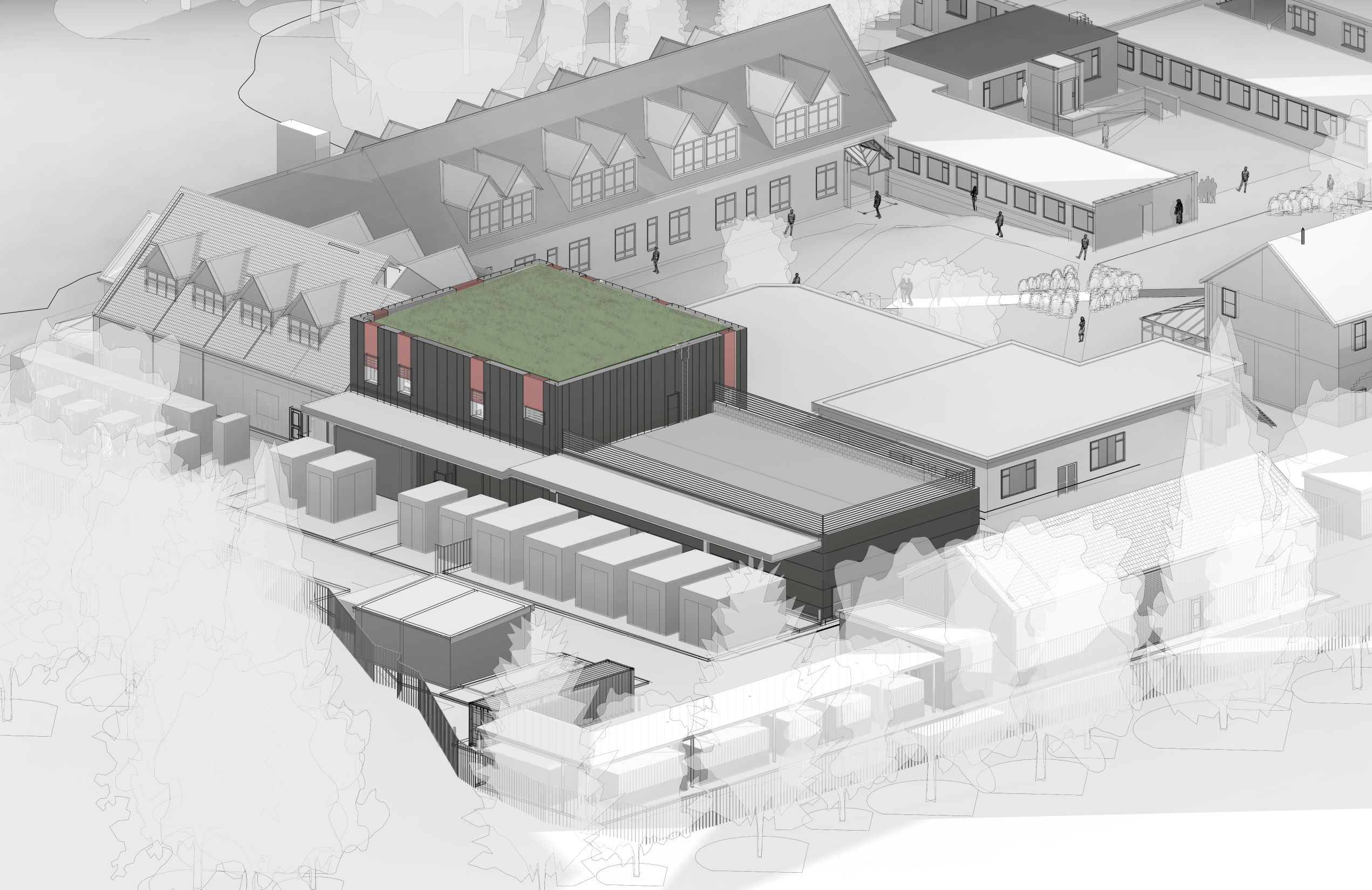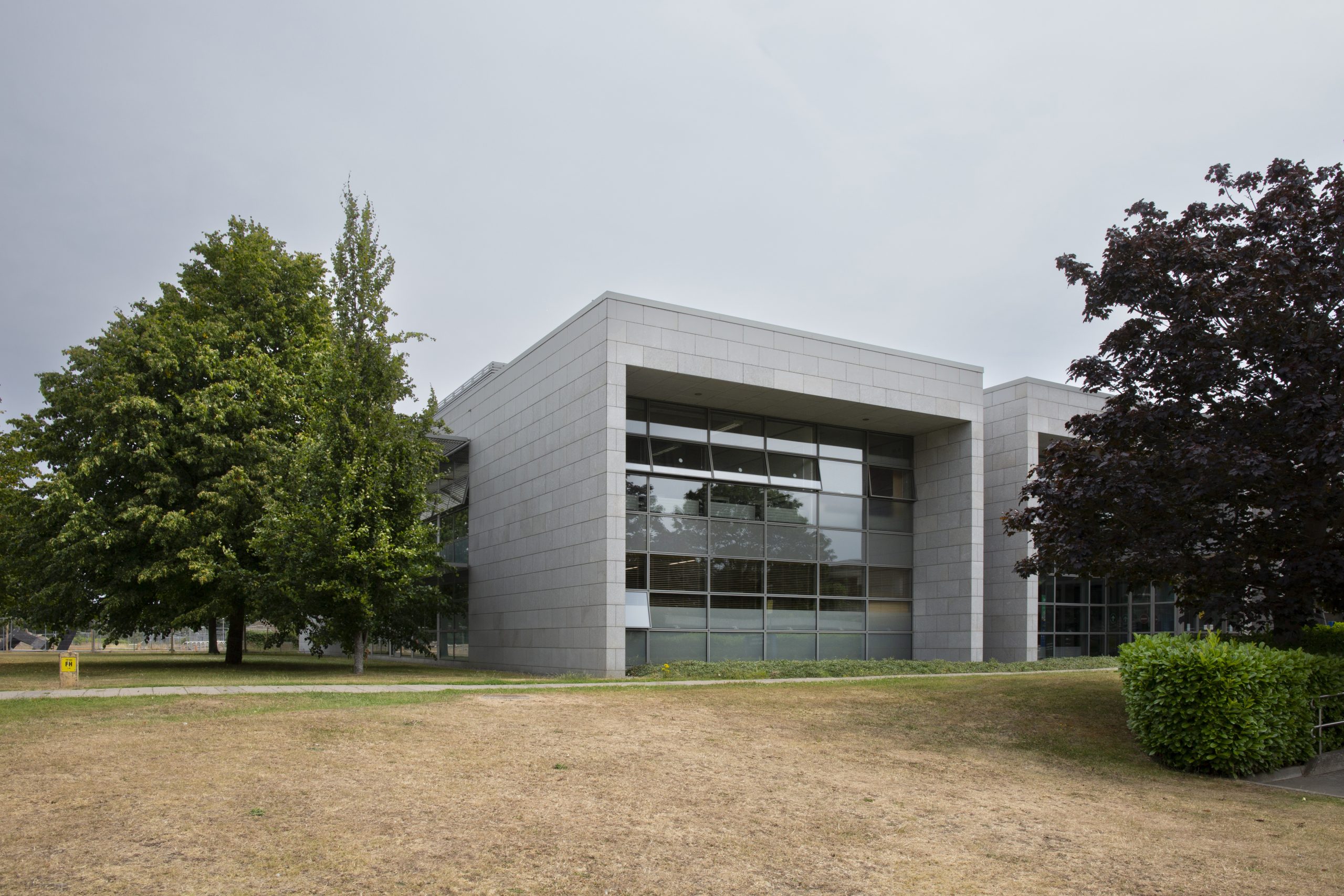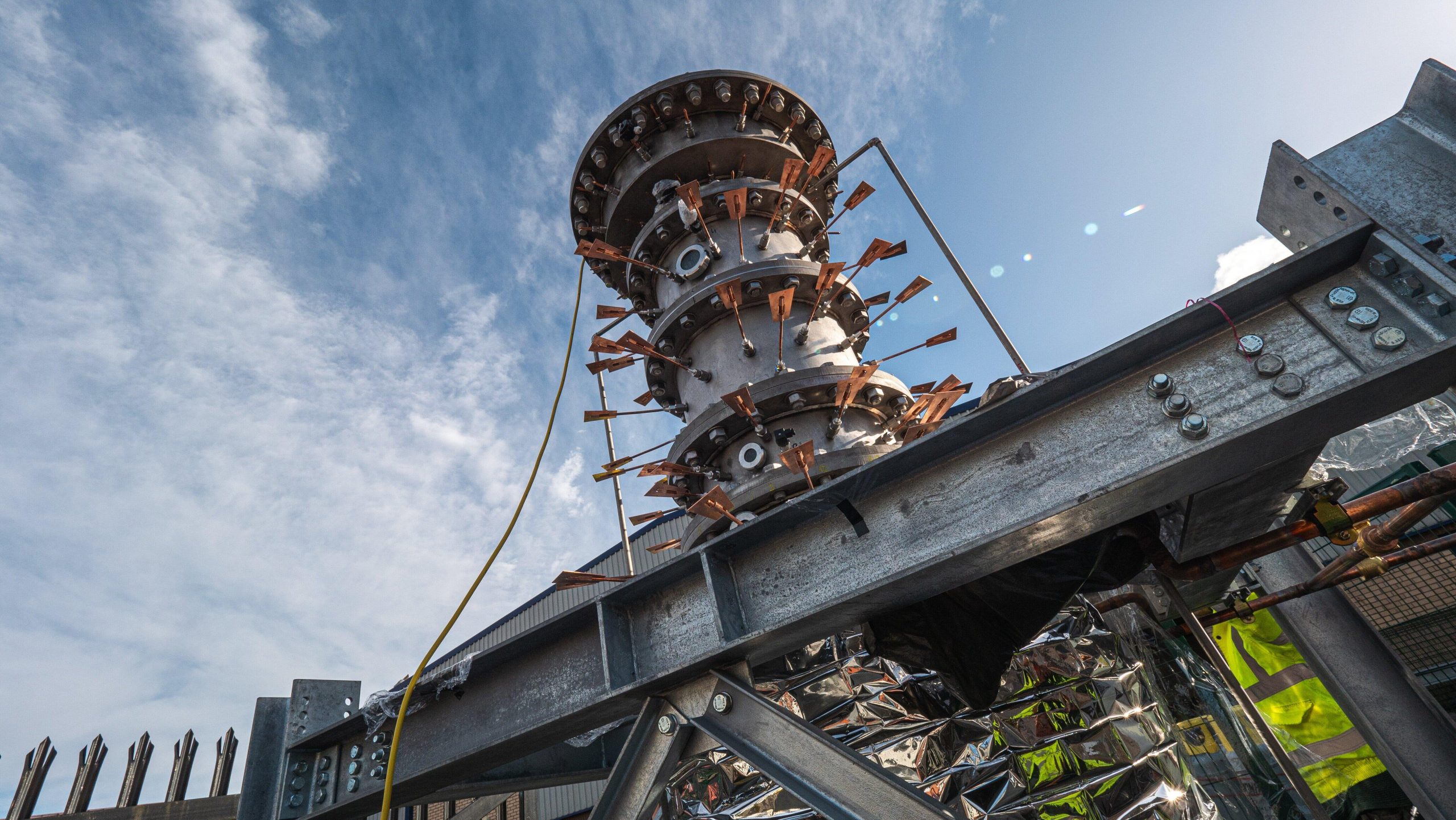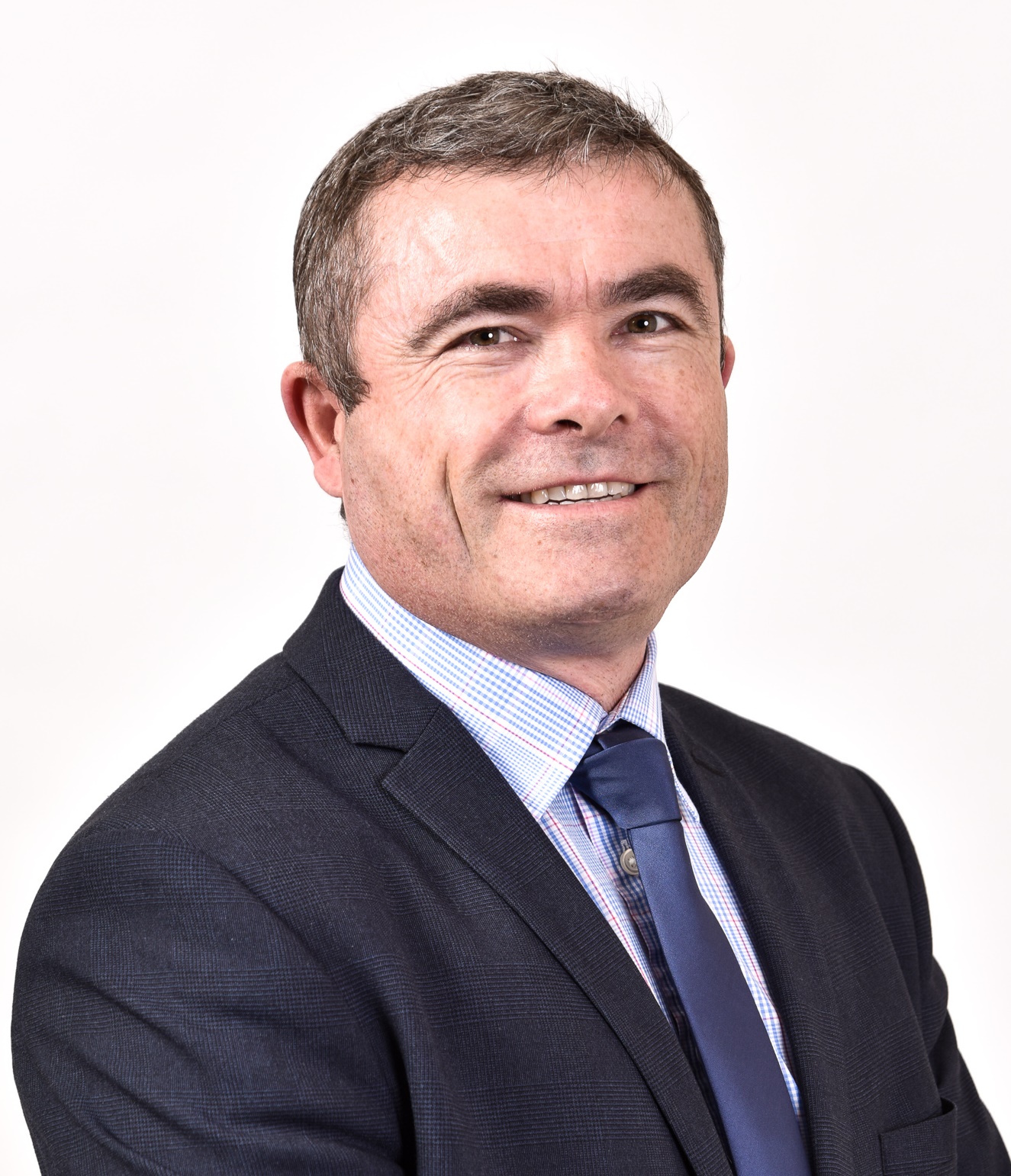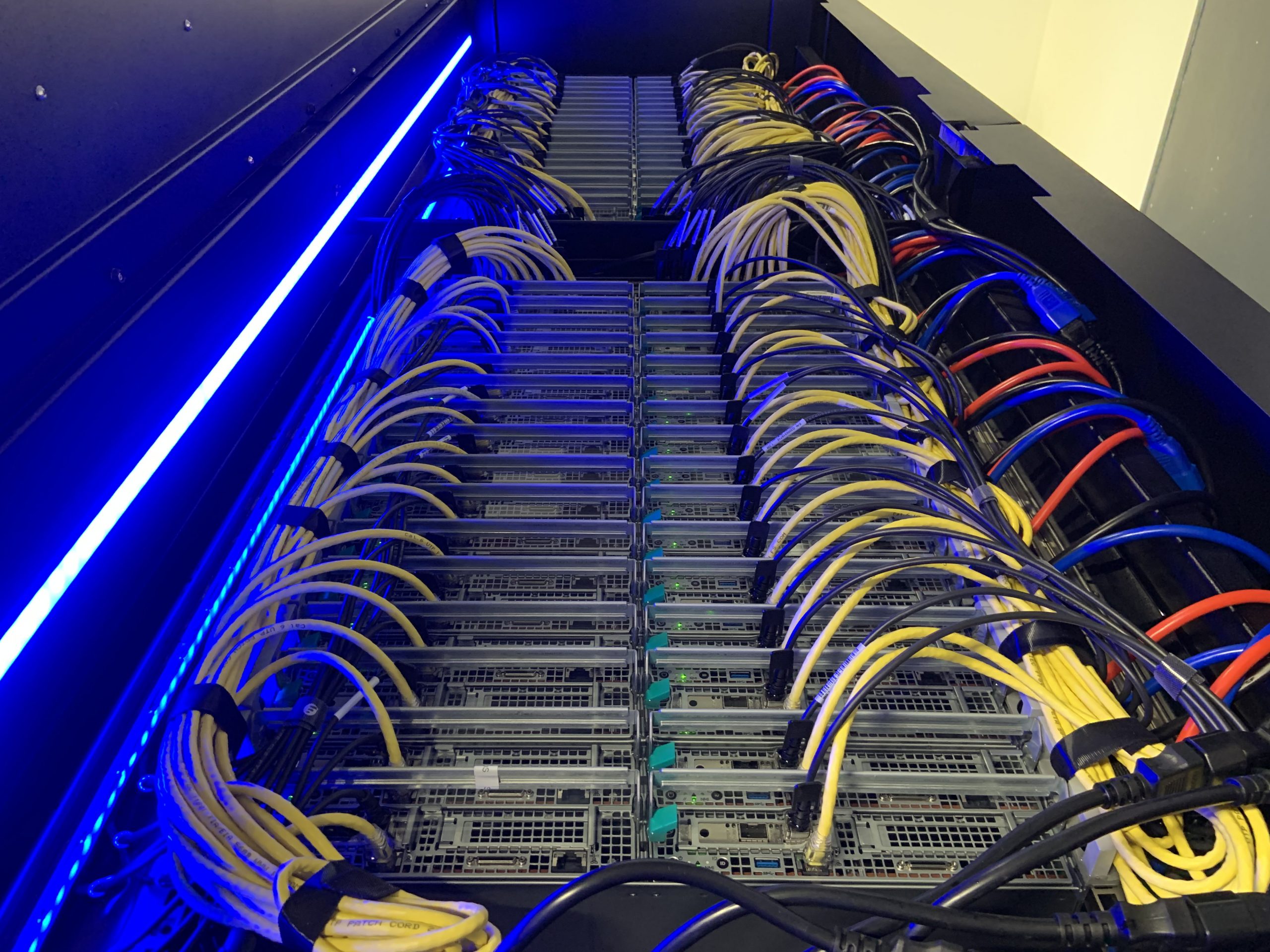Cooling
Cooling
Data Centres
News
Castrol to build data centre immersion cooling test facilities
Castrol plans to build new state-of-the-art immersion cooling development and test facilities for data centres at its global headquarters in Pangbourne, UK. This commitment is part of bp’s recent announcement of plans to invest up to £50 million to set up a new battery test centre and analytical laboratories at the UK site.
The new facility will help Castrol’s thermal management experts to accelerate the development of advanced immersion fluid technologies specifically for data centres and IT/communications infrastructure. It will also support test and validation programmes for customers and partners.
Building on its existing collaboration with Submer, Castrol plans to install Submer’s SmartPod and MicroPod tank systems, that have been adapted to test new fluids and new server equipment.
Earlier this year, both companies agreed to work together on accelerating the adoption and development of immersion cooling technology as a path to more sustainable data centre operations. This announcement will help both parties to intensify their collaboration and strengthen joint development programmes. The facilities will be used to develop and test methods to capture and reuse the heat from data centre operations to further increase operational efficiency.
“Immersion cooled data centres could bring huge gains in performance and big reductions in energy wasted in cooling. Together, Submer and Castrol aim to deliver sustainable solutions as the demand for computer power continues to surge. This investment in proven Submer systems is a key step towards joint development with the goal of enhancing performance and improving data centre sustainability even further through integrated energy solutions”, says Rebecca Yates, bp’s Technology Vice President - Advanced Mobility and Industrial Products.
“Castrol’s investment in Submer’s systems is the next step in our joint mission to accelerate the adoption of immersion cooling technology within the IT industry. The combined expertise of Submer and Castrol aims to provide evidence of how the technology can enhance performance, efficiency and deliver environmental benefits. We look forward to working with Castrol and the wider bp corporation to help the industry become more sustainable”, says Daniel Pope, Co-Founder and CEO, Submer.
The acceleration of Castrol’s ambitions in immersion cooling are aimed at supporting the data centre sector’s increasing ambitions to reduce its environmental footprint. According to the International Energy Agency, data centre operations together with the data transmission network are responsible for over 2% of the global electricity consumption in 2020. With sizeable growth expected in the industry, this share is expected to rise. The energy required for the cooling of a data centre makes up close to 40% of the total energy consumed. To operate data centres sustainably, efficient cooling is key.
Immersion cooling can also help reduce the water consumption of data centres, which is of increasing importance. Accelerating the adoption of immersion cooling fits with Castrol’s PATH360 sustainability framework, which aims to reduce energy, waste and water and help its commercial customers meet their sustainability goals.
Beatrice - 14 October 2022
Cooling
Data Centres
Projects
Schneider Electric delivers cooling infrastructure for University College Dublin
Schneider Electric has worked together with Total Power Solutions to design and deliver a new, high efficiency cooling system to help reduce the PUE of University College Dublin’s (UCD) main production data centre. UCD’s data centre was originally designed to accommodate high performance computing (HPC) clusters and provides a platform for research at its university campus.
University College Dublin is the largest university in Ireland with a total student population of 33,000. It is also one of Europe’s leading research-intensive universities with faculties of medicine, engineering, and major sciences, as well as a broad range of humanities and other professional departments.
As part of a new strategic development plan to free up space at its central Dublin location, the IT services department made the decision to revise and revitalise its data centre cooling architecture to make the facility more energy and space efficient, as well as more resilient and scalable.
In response to a public tender, Total Power Solutions, experts in power and cooling infrastructure design and installation, worked with Schneider Electric to secure the contract with a bid to replace the existing data centre cooling system with a Uniflair InRow Direct Expansion (DX) solution. Schneider Electric’s InRow DX cooling technology offers many benefits including a modular design, more predictable cooling, and variable speed fans which help to reduce energy consumption.
A scalable and efficient cooling solution for UCD
The new solution at UCD is based on 10 independent InRow DX cooling units, which are adapted to the server load to optimise efficiency. The system is scalable to enable UCD’s IT Services Group to add further HPC clusters and accommodate future innovations in technology. This includes the introduction of increasingly powerful central processing units (CPUs) and graphics processing units (GPUs).
The InRow DX cooling units work in conjunction with UCD’s existing EcoStruxure Row Data Centre system, formerly a Hot Aisle Containment Solution (HACS), and provides a highly efficient, close-coupled design that is suited to high density loads. Each InRow DX unit draws air directly from the hot aisle, taking advantage of higher heat transfer efficiency and discharges room-temperature air directly in front of the cooling load, which significantly reduces the need for humidification.
“We designed the system to allow for the addition of four more cooling units to meet future requirements for facility expansion and changes in server technology. The overall effects of installing the new system are greater resilience and peace of mind, more efficient use of space for the benefit of the university’s main function of teaching, greater efficiency of IT infrastructure and consequently, a more sustainable operation,” says Tom Cannon, Enterprise Architecture Manager at UCD.
Resilience and future expansion
Each independent cooling unit also provides additional redundancy in the system, so that if one fails the others have sufficient capacity to continue delivering cool air, ensuring uninterrupted operation of UCDs IT equipment and services. Together Schneider Electric and Total Power Systems also worked to increase the resilience of the system and remove a major single point of failure, which previously existed. This is another major benefit to the university and eliminates risk of outages at critical times such as clearing and examinations.
Further, the condensing elements of the cooling system have also been relocated to the roof of the data centre, freeing up significant space formerly used for external cooling plant and equipment. This has released additional land for redevelopment to house new student and university facilities, and the building is now home to an Applied Languages department, illustrating the low noise levels of the DX system compared to the equipment it replaced. The increased efficiency of the new cooling system has also lowered the data centre’s PUE, reducing its energy consumption and its ongoing operational expenses.
“The Daedalus data centre at UCD hosts everything from high performance computing clusters for research to the centralised IT that keeps the University running. Total Power Solutions and Schneider Electric worked together to deliver a new, more efficient, and scalable data centre cooling system. The installation took place in a live environment with no downtime, in the midst of extensive construction activities on UCD’s Belfield Campus,” says Paul Kavanagh, Managing Director, Total Power Solutions.
“For UCD, having an efficient and highly effective cooling infrastructure was critical to both their HPC research infrastructure and their general IT operations,” adds Marc Garner, VP, Secure Power Division, Schneider Electric UK and Ireland. “By working together with Total Power Solutions, we were able to successfully deliver the new cooling architecture, which will provide UCD with greater resilience of their critical IT systems and will meet the demands of this prestigious university for many years ahead.”
Beatrice - 28 September 2022
Cooling
Data Centres
Nidec adds new products to its line-up of cooling modules
Nidec has announced that it has added products to its line-up of water-cooling modules for data centres.
In recent years, data centres that support ICT services’ operations are witnessing an increase in thermal load due to the technical advancement of the CPU (Central Processing Unit), the GPU (Graphics Processing Unit), and the ASIC (Application Specific Integrated Circuit) among other products, making the requirements for cooling components increasingly strict. With more than 300W of heat generated from high-end CPUs, heatsinks, fans, and other air-cooling systems are considered insufficient to accommodate such an amount of thermal energy. This is why the need for water-cooling systems is on the rise. Additionally, compared with their air-cooling counterparts, water-cooling products can reduce an entire server’s electricity consumption by approximately 30% (according to the results of Nidec’s own investigations and research).
Now, Nidec has added to its line-up CDUs (Coolant Distribution Units), manifold units, water-cooling modules, pumps, and other products, all of which boast high heat-exchange efficiency and low electricity consumption among water-cooling systems.
Since any defect to a water-cooling system can directly cause an ICT service to shut down, the redundancy of the CDU’s main components plays crucial roles. Nidec’s latest CDU is of a compact, rack-installable size (4U) with a cooling capability of 80kW. This product, for the first time in the industry, has redundancy in its critical components of pump, electric power source, and control board (all two units per CDU), as well as other excellent features of serviceability and long-term reliability, which enable hot swap (replacing an existing faulty item without having a shutdown).
As a company with accurate design, simulation, and machining technologies and equipment used for HDD spindle motors (which we own the largest global market share) and other products, Nidec can offer highly reliable products with an excellent cooling capability at a low price.
Individual water-cooling modules can be customized to meet our customers’ requirements such as product sizes and heating values. Nidec stays committed to upgrading its technologies and producing more products in-house to save cost and cover more categories of business and industries.
www.nidec.com
Beatrice - 22 August 2022
Cooling
Data
Data Centres
Networking
News
Scrolling our way to a climate emergency
By Vijay Madlani, co-CEO, Katrick Technologies
The internet is an essential part of modern everyday life. We go online for everything from work to shopping, to communicating - and social media makes up an estimated 35% of this activity. Though posing for selfies isn’t damaging to the environment, the energy consumption and carbon emissions from charging devices, powering the internet, and running data centres can be colossal.
As of 2022, 4.62 billion people use social media in one form or another. Moreover, of the estimated seven hours each day that the average person uses the internet, the largest proportion of this is made up of social media, at an estimated 35%, or two hours and 27 minutes. Hands up if you’re guilty too!
Even the smallest action on social media produces small amounts of carbon. Instagram emits 1.5g of CO2 per minute of scrolling and posting a photo emits 0.15g. Even in the 28 minutes a day that the average Instagram user browses the app, this would result in at least 42g of CO2 on this platform alone. Each of Facebook’s 2.9 billion active users is estimated to produce 12g of CO2 annually, and on Twitter, sending a single tweet is thought to emit roughly 0.02g - a relatively low figure, until you consider that the 50 million tweets sent out daily across the globe would produce one metric tonne of CO2.
The biggest offender is TikTok. Just one minute of scrolling through TikTok videos emits 2.63g of CO2. Even five minutes a day on TikTok would add up to roughly 4800g of CO2 a year per user, which is the equivalent to the emissions released by driving over 21 miles in a car.
Though the emissions produced by small actions on an individual scale may not seem that significant, when we account for users’ overall social media use it adds up considerably. Combining this with other activities highlights that our internet use may be harmful to the environment.
But how does using social media actually produce emissions? Social media relies on the exchange of large amounts of data - data which needs to be securely and reliably stored. One of the most effective ways is through data centres. Meta is constructing an additional seven million square feet of data centre space in the USA and an additional new centre in Spain, alongside its existing centres. TikTok is set to open its first European data centre later in 2022, and Google currently has 23 worldwide.
Data centres worldwide consume just under 200TWh of energy and produce around the same amount of carbon emissions as the global aviation industry at just over 2%. One of the most significant factors in data centre energy consumption is cooling. Most data centres need to be run at a consistent stable temperature. Above these temperatures there are risks of overheating and failure. As servers produce a large amount of heat, keeping the surrounding environment cool to ensure optimum working temperatures is crucial.
With the scale of many data centres, keeping them cool is no mean feat. Not only can cooling systems be expensive to implement, powering them requires significant amounts of energy. 90% of the air conditioning and air handling units used by the UK data centre market consume between 26% and 41% of the total energy.
To address this, new innovations are in development, like passive cooling systems that use waste heat produced by data centre servers to power a Thermal Vibration Bell (TVB). This example is a unique patented system from Katrick Technologies, which uses bi-fluids to convert heat to fluid vibrations which turn into mechanical oscillations when they hit protruding fins. These fins passively dissipate unwanted hear to provide the required ambient temperatures for servers to run. Initial trials conducted at UK-based data centre provider iomart indicate that the system can reduce the energy used for cooling by 70%, which would reduce an operational carbon footprint significantly. Finding these alternative ways to cool data centres is crucial to support the world’s relentless appetite for social media. As such, innovation in this sector is more important than ever.
Internet usage will inevitably continue to underpin many important aspects of modern life. Though social media has revolutionised communications and made our planet more connected, it is important we understand the environmental consequences of these habits and how to counteract them.
www.katricktechnologies.com
Beatrice - 22 August 2022
Cooling
Data Centres
Rising temperatures highlight need for liquid cooling systems
The rising frequency of extreme weather periods in Europe necessitates a move towards liquid cooling systems, suggests a sector expert.
This warning follows record-breaking temperatures in the UK last month, with some locations exceeding 40°C. As a result, a number of high-profile service providers in the nation experienced outages that impacted customer services, the effects of which were felt as far as in the US.
One operator attributed the failure to ‘unseasonal temperatures’. However, with the UK MET Office warning that heatwaves are set to become more frequent, more intense and long-lasting, Gemma Reeves, Data Centre Specialist at Alfa Laval, believes that data centres will need to transition to liquid cooling systems in order to cope. She says: “The temperatures observed last month are a sign of what is to come. Summers are continuing to get hotter by the year, so it’s important that data centres are able to manage the heat effectively.
“Mechanical cooling methods have long been growing unfit for the needs of the modern data centre, with last month’s weather only serving to highlight this. As both outside temperatures and rack densities continue to rise, more efficient approaches to cooling will clearly be necessary.”
Traditional mechanical cooling systems make use of an electronically powered chiller, which creates cold air to be distributed by a ventilation system. However, most mechanical cooling systems in the UK are designed for a maximum outdoor temperature of 32°C - a figure which continues to be regularly exceeded.
Gemma believes that liquid cooling can solve this challenge. Cooling with dielectric fluid rather than air means that the cooling systems may be run at much higher temperatures.
Liquid cooled principles such as direct-to-chip, single-phase immersive IT chassis, or single-phase immersive tub allow the servers to remain cool despite much higher outdoor air temperatures, while maintaining lower energy consumption and providing options for onward heat reuse. In studies, this has also been shown to increase the lifetime of servers due to maintaining a stable stasis.
Gemma concludes: “The data centre sector remains in an era of air-based cooling. That said, July’s recent heatwave may be the stark reminder the sector needs that these systems are not sustainable in the long term.
“Liquid cooling is truly the future of data centres, this technique allows us to cool quicker and more efficiently than ever before, which will be a key consideration with temperatures on the rise.”
Beatrice - 10 August 2022
Cooling
Data Centres
News
Airedale appoints Adrian Trevelyan as data centre lead
Airedale has announced the appointment of Adrian Trevelyan as Director of its Cloud Services Business Unit. Responsible for one of Airedale’s most significant commercial operations, Adrian will be accountable for a worldwide territory (excluding US), leading the data centre cooling arm of the Airedale business as it accelerates its growth strategy.
Adrian, who has achieved an MBA and Chartered Manager status during his career to date, brings a wealth of data centre knowledge and unwavering leadership skills to his new position. Having worked with Airedale by Modine for 32 years, most recently as After-market Director, he has vast experience of the data centre industry, both at a hands-on and strategic level. Reporting to Adrian will be Airedale’s established data centre focussed engineering, project management and commercial teams.
Replacing Adrian as After-market Director will be John Board, who recently joined the company as Service Manager and has already impressed with his passion, knowledge and commitment. John also has a wealth of business-critical cooling experience and holds an accreditation in ‘Data Centre Management and Operations’ from The Uptime Institute and will work closely with Adrian during a transition period to ensure service continuity for clients.
Adrian will work alongside Airedale’s existing business unit directors, focussed on Airedale’s strategic customer segments, to continue to accelerate Airedale’s ambitious growth strategy. These are Rob Bedard, who leads the Cloud Services division in the US, Jonathan Jones, who leads the Commercial and Industrial Sector for the UK, and Asim Ansari, who leads the Enterprise, Telecoms, Edge and International Channel Sales division. All four business unit leaders report to Vice President, Jonas Caino.
Jonas says, “I am delighted to announce the appointment of Adrian Trevelyan as Cloud Services Business Unit Leader. Adrian has consistently delivered throughout his career with Airedale and is an esteemed member of our management team. Well-liked and trusted by both customers and employees, Adrian’s industry insight and technical knowledge affords him huge respect in the data centre segment and wider HVAC community.
“Having Adrian at the helm as we accelerate our growth strategy into the data centre industry is a great thing for both our customers and our business.”
Adrian comments, “I am thrilled to be taking up this new position with Airedale by Modine. I have been with the company for a long time and am keen to take it to the next level, supporting my teams along the way.”
Beatrice - 9 August 2022
Cooling
Data Centres
University of Hull develops a new cooling system for data centres
As heatwaves become more extreme, cooling solutions are increasingly important, but the challenge is how to build cooling systems without contributing to climate change.
The Centre for Sustainable Energy Technologies (CSET) at the University of Hull has developed a new, energy efficient cooling system for data centres. The technology is 50% more efficient than existing indirect evaporative air conditioning, and 90% more than mechanical vapour compression. As a result, the technology delivers near to zero carbon air conditioning and reaches a Coefficient of Performance (COP) of 52.5.
The new dew point air conditioning technology works by indirect evaporative cooling - no refrigerant or mechanical compressor is used. Instead, it cools the air by water evaporation, but does not add any moisture into the air-conditioned space, like data centres. Importantly, thanks to the patented complex heat/mass exchanger, the new technology can produce the cooled air with a temperature below the ambient wet-bulb temperature. This reduces the ducting size which would be required if using a conventional evaporative air conditioner.
This innovation offers a new method for cooling which could greatly reduce power use and be used worldwide. The technology can be used for cooling a range of buildings but has found a particular home in cooling data centres.
The data centre market has grown rapidly over the past 40 years, especially during the pandemic when global internet traffic surged by 40% at the start of 2020.
The system was first rolled out on an industrial scale in 2020, when CSET installed two 4kW systems at the Aura Innovation Centre. Compared to the existing mechanical vapour compression AC systems installed at the centre the new units saved 24,000kWh annually. This saves about 5,600kg per annum of carbon emissions and £3,400 per annum off their energy bill.
In 2021, funded by the Industrial Energy Efficiency Accelerator (IEEA) programme, another 100kW system was installed at Hull City Council’s Maritime Data Centre. This saved 350,000kWh in power compared to the previous systems, reduced emissions by 100,000kg and saved £54,750 per annum in energy.
The IEEA supports partnerships between developers of energy or resource efficient process technologies as they partner with industrial companies, willing to demonstrate the solutions on-site. The IEEA is funded by BEIS and managed by the Carbon Trust in partnership with Jacobs and KTN.
Phase four of the IEEA is open for applications until 19 September 2022.
Beatrice - 4 August 2022
Cooling
Data Centres
Product
Cooling solution launched to enable greener data centres
ST Engineering has announced the launch of its new Airbitat DC Cooling System, marking its entry into the data centre cooling market. The Airbitat DC Cooling System delivers powerful pre-cooling for tropical data centres, achieving annual net energy savings of more than 20% over conventional chiller systems alone. This translates to annual energy savings of about $104 per kW of heat load.
Combined with existing chiller systems, the Airbitat DC Cooling System enables data centres to reach a targeted Power Usage Effectiveness (PUE) of below 1.3, backed by eight years of engineering and ST Engineering's patented evaporative cooling technology. This performance represents a significant improvement over current regulatory requirements for data centres in Singapore, positioning it to meet more stringent standards for future data centre builds.
“Through re-engineering our established Airbitat solution for the data centre environment, we have successfully developed a sustainable solution that significantly cuts energy consumption while reducing carbon intensity. Its ability to be readily deployed in existing data centres presents an attractive option for operators who are looking for cost-effective solutions to lower energy consumption and achieve their sustainability targets,” says Gareth Tang, Head of Urban Environment Solutions at ST Engineering.
“With the exponential growth in compute-intensive applications and increasing data needs, the data centre industry is fast reaching its sustainability tipping point. We believe that the Airbitat DC Cooling System can help the industry address its most critical challenge today and support its growth in a more sustainable manner.”
Enabling greener data centres
Backed by extensive R&D, the Airbitat DC Cooling System comprises of a Dual Coil Computer Room Air Handler (CRAH) and a Deep Cooling Unit that’s powered by patented Reevac Deep Cooling technology. The Airbitat DC Cooling System works by pre-cooling the hot return air in the data hall to reduce over 40% of the heat load from the existing chiller system. This significantly reduces the overall energy requirements for cooling by more than 20%. Additionally, the Airbitat DC Cooling System does not generate waste heat into the environment as it does not use energy-intensive compressors, nor refrigerants. It also has lower water consumption requirements when compared to conventional water-cooled chiller systems.
The Airbitat DC Cooling System can operate under varied climate conditions ranging from hot and humid, to hot and dry environments. Its smart controls detect ambient psychrometric conditions and automatically adjusts its cooling modes in real-time for consistent energy efficient cooling. Additionally, its modular design and ability to scale on demand accommodates different data centre cooling requirements as well as structural and layout constraints, allowing for easy integration in both brownfield and greenfield developments.
The International Energy Agency estimates that the data centre industry currently uses around 1% of the world’s electricity, which could reach double digits by 2030. In Singapore, data centres accounted for 7% of Singapore’s electricity requirements in 2020. Over 40% of data centre energy needs are used for cooling, and data centres commonly utilise conventional water-cooled chiller systems which not only have high energy and water consumption requirements, but also release waste heat into the environment. With demand for data centre services set to heighten against the backdrop of climate change, more efficient and effective cooling technologies will be critical to ensure the sustainable growth of the industry.
Beatrice - 13 July 2022
Cooling
Data Centres
Projects
Airedale by Modine launches with Corscale Data Centres
Following the announcement that Airedale has commenced full scale production at its new US chiller plant in Rockbridge, Virginia, the company has confirmed a significant order with data centre giant, Corscale, with plans for further business in the coming months.
With Airedale by Modine cooling solutions set to be installed at Corscale’s Gainesville Crossing Data Campus, the company has secured a healthy pipeline for its OptiChill free-cooling chillers, AireWall fan walls and SmartCool ONE computer room air handling units.
Corscale is focused on delivering sustainability at scale for hyperscale operators and enterprise clients. Following a substantial period of consultation, Corscale appointed Airedale by Modine due to its history of free-cooling technology paired with its in-depth knowledge and understanding of the data centre industry.
Having worked closely with engineers from Corscale, Airedale by Modine has developed a specialised data centre chiller based on its existing OptiChill range. The Corscale chiller, with enhanced free-cooling, has been designed to meet North American safety standards, using American materials and components, to offer a world-class energy efficient solution. Engineering specialists at the chiller plant in Virginia have worked with their colleagues at Airedale by Modine’s centre of excellence in Leeds, UK, to deliver a cooling solution that delivers on performance whilst operating at higher water temperatures and fluid temperature differentials than traditional offerings, enhancing energy efficiency and free-cooling potential.
Prior to the commencement of site deliveries, the team from Corscale will be invited to a witness test at Airedale by Modine’s brand new state-of-the-art laboratories in Rockbridge VA, where the units will be put through their paces under various conditions and tested at different heat loads, simulating the environment and conditions they will be operational under. The test centre at Rockbridge is capable of testing a complete range of air conditioning equipment up to 2.2MW (expanding to 5MW in future for water-cooled chillers), the climate temperature being fully controllable anywhere from 15°C/59°F to 52°C/126°F.
Chiller
The new Corscale chiller operates using twin screw compressors and has a number of special features, included to enhance efficiency and performance, including:
• High capacity twin screw compressors offer reliability and flexibility, with staged capacity control
• High water temperatures to suit modern data centre designs that prioritise sustainability
• Enhanced controls, including fast start, input power limiting and intelligent management of compressors, refrigerant and pumps
• An on-board variable speed pump to precisely match cooling demand, reducing waste energy expenditure while maintaining water-side temperature differential and saving on space and electrical distribution requirements
• Optimised economisers to provide unmatched free cooling potential
• 100% contained Glycol loop to isolate the economiser from the cooling loop and increase efficiency of the AireWall units
• Enhanced controls platform, including redundancy back-up and fast-start mode, to minimise the risk of disruption in the event of mechanical breakdown
• On-board active harmonic filtration, ensuring a clean power supply to the data centre, while saving on external plant requirements.
Jonas Caino, Vice President at Airedale by Modine says, “We are delighted to announce our order with Corscale, as we start full-scale production at our first-class facilities in Virginia, the largest data centre market in the world.
“Having invested heavily in our US production facilities, ensuring they deliver the same high-quality service and product that our clients have grown to expect and respect from our European production sites, it has been really interesting and enjoyable to work with our American-based colleagues on such a fantastic project and client as Corscale.”
Jonas concludes, “This order is just the start for our Rockbridge facility, and I am excited to see what the next few years holds.”
Beatrice - 12 July 2022
Cooling
Data Centres
Castrol and Submer to collaborate on immersion cooling solutions
Castrol and Submer have signed an agreement that will aim to accelerate the adoption of immersion cooling as a path to more efficient and sustainable data centre operations.
The two companies plan to collaborate on the global supply, standardisation and development of next generation immersion cooling fluids – fluids used to cool components of IT equipment by submerging the server equipment in a thermally conductive and dielectric liquid. The servers are cooled as a result and heat is transferred from the source to the liquid.
By combining Castrol’s thermal management expertise with Submer’s expertise in immersion cooling systems, the two organisations aim to achieve a multitude of benefits, particularly in allowing data centres to be managed in a more sustainable manner. With immersion cooling, water usage and the power consumption needed to operate and cool server equipment can be significantly reduced.
bp, Castrol’s parent company, is also working with other companies in key industrial sectors that have significant carbon emissions to help them decarbonise by offering integrated energy solutions. This potentially opens additional opportunities for Castrol and Submer to explore integrated coolant and energy offers, tailored to support data centre customers to help them meet their sustainability goals.
“At Castrol, we aim to work with our customers to help deliver a more sustainable future as set out in our PATH360 framework, including working with our commercial customers to help them save energy, waste and water. Teaming up with Submer is a great example of how cooperation can help deliver more efficient operations and can bring about many opportunities for us to continue to deliver products that help save energy whilst delivering high-performance with increased efficiency”, says Rebecca Yates, bp’s Vice President of Advanced Mobility and Industrial Products.
“At Submer, our stated mission is to enable sustainable digital infrastructures. There are two key drivers for needing a different medium other than air; there’s a technical need driven by the supporting future generations of high-density chips that can no longer be cooled by traditional means, and a sustainability driver, driven by the need to deliver more sustainable data centres with improved environmental performance. Thanks to immersion cooling, we can run these digital infrastructures with considerably reduced energy and space than typically required. Additionally, by utilising heat recovery and reuse technology, we turn them into highly efficient thermal power sources that can deliver hot water to neighbouring businesses. All this happens thanks to a liquid medium that both Castrol and Submer are experts in”, comments Daniel Pope, Co-Founder and CEO, Submer.
Beatrice - 24 June 2022

Head office & Accounts:
Suite 14, 6-8 Revenge Road, Lordswood
Kent ME5 8UD
T: +44 (0)1634 673163
F: +44 (0)1634 673173
